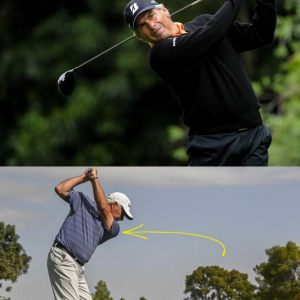Phil Mickelson said something interesting on Thursday. Or maybe he didn’t. But we can wonder.
This weekend marks the final competition of LIV Golf’s 2024 season. While the individual competition wrapped up last week in Chicago, this week marks the team championship, held for the first time at Maridoe Golf Club in Dallas. The conclusion of the league’s third season has LIV players looking ahead to next year and beyond. But it’s impossible to look to next year and beyond without wondering how LIV’s future intersects with the PGA Tour’s future; any agreement between the two remains in confusing, protracted limbo.
Mickelson’s comments came near the end of a Thursday press conference, which began with LIV’s team captains picking their opponents for weekend match play and finished with questions about the league more broadly. It was actually Martin Kaymer who first broached the subject, responding to a question about what he hopes for going into 2025.
“First and foremost, I think we all need to understand that LIV is still a startup,” Kaymer said. “They started only two and a half, three years ago, and where we’ve come to to date today has been absolutely amazing.” He cited the need for further adjustments “until we get it all perfectly right.” But he also suggested a notable tweak to the schedule.

“I don’t know what we’re going to do next year, if maybe the team aspect will stand more in — let’s say more — I guess where the team is more important than the individual scores, so there are a lot of talks going on right now. That would be fantastic because this is what LIV is all about, the team aspect.”
Louis Oosthuizen chimed in, echoing that team-first approach.
“I think going forward we all feel that the team side of it, it’s going to probably take over and LIV Golf is going to probably be more team than anything,” he said.
That’s where Mickelson chimed in, first teasing the idea that there remains interest from outside players to sign with LIV — “Yes,” he said, though he declined to expand beyond that — before he expanded on the idea of LIV doubling down on team play.
“The match play, the head-to-head aspect of it is bringing a different dynamic, a different feel, a different energy,” he said. “And I think the great thing about LIV Golf is the ability to pivot and change and do things a little bit more fluid than other tours, and maybe this is something we look at in the future having more team events throughout the year rather than just the season-ending. This is a lot of fun. We’re all enjoying it. There’s more interest. You notice there’s a lot more laughter, a lot more interesting matchups.
“I think this week is really a special week. It’s an exciting week, and I think it resonates more with a lot of fans, and maybe we should do this a little bit more often.”
So how should we read into these comments and how do they connect to the larger golf world? One interpretation would be that this is a bunch of nothing, just guys talking off-the-cuff at a press conference. Maybe they’re trumpeting the merits of team match play because this week they’re playing team match play, the way you might go bowling for the first time in a while and say to your buddies, “y’know, we really have to go bowling more often.”
But I doubt it. When Mickelson speaks publicly he usually means something by it. And the captains’ alignment on the subject suggests they’ve at least spoken internally about this team-first emphasis, which, by the way, is no small change: it would represent a significant departure for the league. While LIV has marketed itself as a team-first product — the uniforms, the captains, the franchises — the mechanics of the league have still rewarded and prioritized individual stroke play. Individual purses have dwarfed team purses and team winnings reportedly go back to the franchise rather than the individuals, anyway. Most weeks, the team aspect has felt like an add-on to the individual competition rather than the focal point. What they’re talking about, then, is the “ability to pivot” to something different: a league that would be team-first for the first time in modern professional golf history.
This seems like a good idea for a few reasons. For one, it would further differentiate LIV from other golf leagues; despite its shotgun-start, 54-hole format LIV is still stroke-play golf on the weekends, just like the PGA Tour and every other big-time tour, too. For another, team match play is a reliably exciting version of golf — in the Ryder Cup, Solheim Cup and Presidents Cup, at least. The Cleeks, up to this point, don’t have the same built-in fan base as the United States of America, but the format at least has promise. Plus, LIV doesn’t have much to lose; it has already abandoned its quest for World Ranking points and their sagging TV ratings suggest that something has to change, so they have the flexibility to do so. And if long-term value is the goal, leaning further into the team aspect could theoretically juice the value of the league’s franchises.
Let’s not stop there, though. Come with me one step further on this connect-the-dots journey. Let’s circle back to this idea that professional golf is trying to find a way forward where the PGA Tour and LIV can exist in the same universe and overlap more often than just the majors. While there was some sensationalist reporting earlier this week that the sticking point in negotiations is Jon Rahm and other LIV pros paying back signing bonuses, sources I’ve spoken with don’t give that much credence. Instead the bigger questions involve the Department of Justice, the size of the Saudi Public Investment Fund’s investment and — this one’s our focus here — how to incorporate a version of LIV into the PGA Tour’s schedule.
Too many people with too much money and pride have gone too far down the LIV path to just fold up shop; that seems unlikely at this point. But perhaps if LIV focuses more in what makes it different — the team aspect — it’s easier to shift it from a direct competitor to a complementary piece of the pro golf puzzle. Perhaps there’s a world where team golf remains as LIV’s legacy, that team schedule folds into the PGA Tour schedule, the franchises continue exist and LIV’s individual players have a pathway to play in PGA Tour events.
None of this is going to happen quickly. That much is clear by now. Not everybody wants the same thing, either. But there are signs of schemes and signs of compromise. Rory McIlroy and Scottie Scheffler arranging a made-for-TV match with Brooks Koepka and Bryson DeChambeau. The PGA of America clarifying that LIV golfers will be eligible for the PGA Championship and U.S. Ryder Cup team going forward. The DP World Tour working with Jon Rahm and others to allow them to appeal their sanctions and compete in the meantime. And now, for the first time, we could be seeing LIV make a change that makes it more compatible with the rest of the golf world.
Pro golf’s unified future requires assembling a puzzle. In time we’ll see whether the stakeholders want to find a way to fit it together — or if they’d prefer to drop the box on the ground, sending important pieces skittering under the couch.





